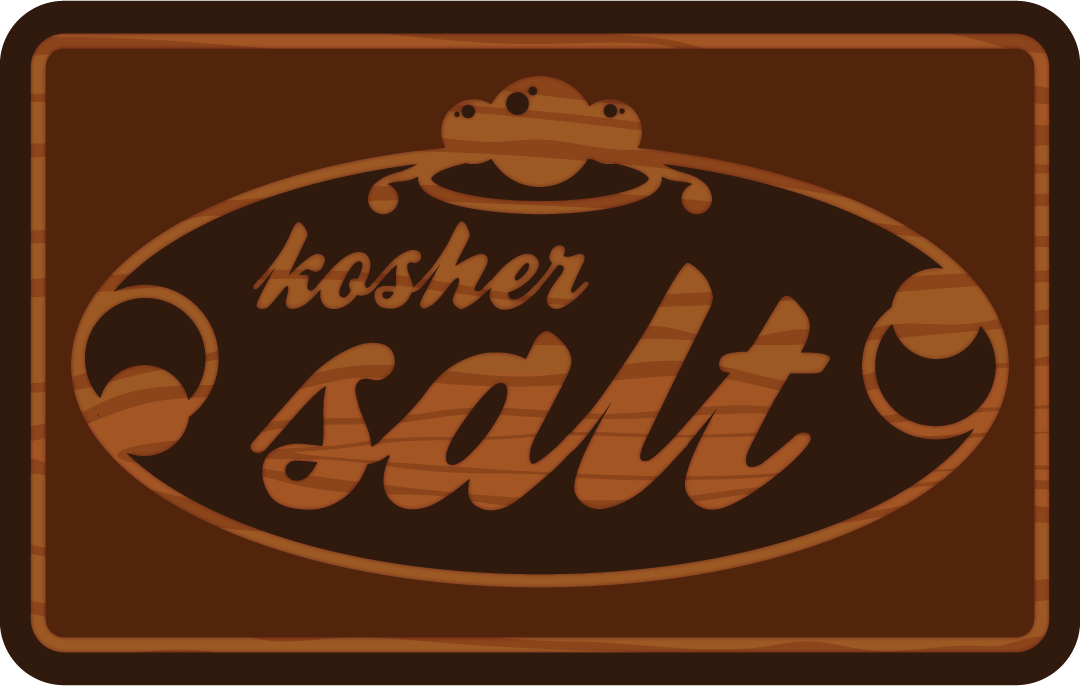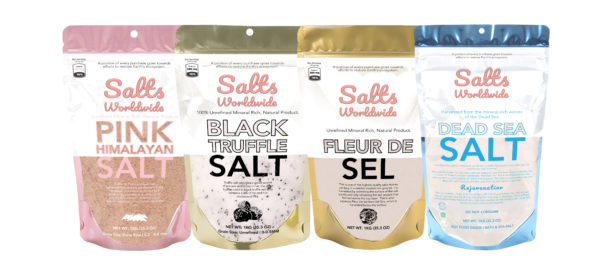
Kosher salt typically does not include any additives though some businesses may add a few minerals to allow it to be free flowing. It is a type of salt that is free from any additives at all. Kosher salt, by contrast, has larger, coarser grains that are simple to feel and simple to sprinkle, which makes it much simpler to gauge the suitable degree of seasoning. Kosher salt might also be utilized in recipes that require the usage of coarse salt. It, on the other hand, is iodine-free, and you should use that instead. For every other kind of use you may have, kosher salt is better, just because it enables you to season your food to the specific point you would like it to be at effortlessly.
All salt isn’t created equal. The majority of the salts are alike, composed of sodium chloride and little amounts of minerals. Also, depending on the manufacturing, extracting or further processing methods, it can have many or no additional minerals. Understandably, sea salt is pricier, due to the labor-intensive production. On the other hand, since it is the most unrefined variety of salt, it also tends to be the most expensive. Himalayan sea salt is thought to be among the purest salts on earth. Natural sea salt includes trace quantities of iodine.
You don’t really ever need to use sea salt, but it’s fun and fancy. Sea salt has gotten increasingly popular, especially in restaurants, due to its healthy and organic image. Sea and table salt is basically the identical thing.
Kosher salt is a particular sort of salt which is not heavily refined, permitting it to retain a flaky, multifaceted crystalline structure. It is a type of salt. Additionally, it works well when wanting to achieve a salt rim around the top of a margarita glass. In addition to being only lightly refined, it also has no additives such as iodine, making it a very pure, plain salt with a mild flavor. It is sometimes used by cooks as a replacement for table salt because of its particular taste. On the other hand, it can be used as a general purpose salt. It has a very coarse, flaky texture that is very god at removing blood.
Salt is really the most important part of our day-to-day life and is necessary for our well-being. Kosher salt is created by evaporation procedure. It is great for curing meat because of its large surface area which allows it to absorb more moisture than other salts. It is crucial to be aware that it’s called kosher salt not due to its compliance with the Torah or Jewish Written Law.
You would like a pinch of salt to be the exact pinch of salt every moment. You can also produce salt in a lab however, you would be spending much more income than the other processes. Table salt consists of sodium chloride. It is the most common form of salt for everyday consumption and is what most people use to season their dishes. It is perhaps one of the most common household items and ingredients in cooking. Plain table salt comes in a selection of styles too, along with the typical fine grained variety.
Iodized salt is less expensive than sea salt. It is provided for cooking and normal seasoning. It is different from non-iodized salt because it contains iodine, a mineral. Iodized salt and non-iodized salt are the two key options which arrive in our mind while we’re speaking about salt. Iodized Salt Is Safe to Consume Studies demonstrate that iodine intake over the daily recommended value is normally well tolerated. If you’re thinking about replacing iodized salt with the (usually more expensive) non-iodized selection, keep in mind that you will likely be increasing the expense of your dish.
Salt is a crucial portion of all human and animal life. Pickling salt doesn’t contain any iodine and additives while the exact same cannot be said about all kosher salts. It does not contain additives mainly to avoid the brine get discolored and cloudy. If you take a close look at table salt below a microscope, you are going to observe that table salt was milled such that a number of the salt crystals look like little cubes. As a result, if you decide not to eat regular iodine-enriched table salt, then make sure to’re eating various other foods that have a lot of iodine, like fish, dairy, eggs and seaweed.


